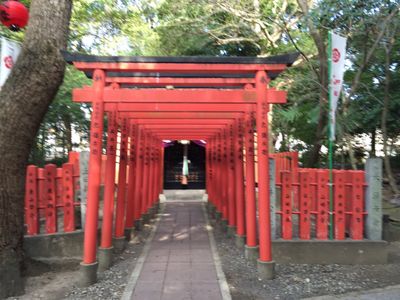Exercises in understanding Japanese and participating in conversations in a variety of situations. Pronunciation exercises. Grammar and vocabulary exercises Active learning of approximately another 100 Kanji characters. Overview of the structure of technical terms. Translation exercises on everyday texts and simple technical texts from Japanese into Swedish and vice versa. Writing exercises, e.g. filling in forms and CV templates. Facts about Japan, Japanese culture, society and technical development.
LS1484 Japanese A2 for Engineers 7.5 credits

Welcome to LS12484, Japanese A2 for engineers.
During this course we will learn even more nuanced expressions in Japanese to navigate through different everyday situations.
Information per course offering
Course offerings are missing for current or upcoming semesters.
Course syllabus as PDF
Please note: all information from the Course syllabus is available on this page in an accessible format.
Course syllabus LS1484 (Autumn 2019–)Content and learning outcomes
Course contents
Intended learning outcomes
The intended learning outcomes for the course refer mainly to the level A2 according to CEFR, the Common European Framework of Reference for Languages, and aim to strengthen the student's global competence.
On completion of the course, the student should, in addition to what is specified in courses at the lower level, be able to:
• use the language in speech and writing in everyday situations and simple work-related situations
• understand and distinguish the main contents in clear standard speech about well-known subject areas
• participate in conversations about familiar subjects in everyday situations
• write texts, such as letters, to express thanks or wishes
• identify facts in simple, technical texts
Literature and preparations
Specific prerequisites
Basic university qualification. Completion and pass of Japanese A1 for Engineers, equivalent older course, or the equivalent knowledge demonstrated in a compulsory placement test taken before applying for the course.
Literature
Course literature will be announced before the start of the course.
Recommended reference literature and electronic resources will be listed in the course information or in a similar way.
Examination and completion
Grading scale
Examination
- KONA - Assessment, 1.5 credits, grading scale: P, F
- LEXA - Continuous Assessment, 6.0 credits, grading scale: P, F
Based on recommendation from KTH’s coordinator for disabilities, the examiner will decide how to adapt an examination for students with documented disability.
The examiner may apply another examination format when re-examining individual students.
If the course is discontinued, students may request to be examined during the following two academic years.
The examiner determines, in consultation with the KTH coordinator for support to students with disabilities (Funka), possible customized examination for students with any documented and permanent functional disability. The examiner may offer a different type of exam for re-examination of individual students.
Other requirements for final grade
All examination parts passed
75% attendance
Examiner
Ethical approach
- All members of a group are responsible for the group's work.
- In any assessment, every student shall honestly disclose any help received and sources used.
- In an oral assessment, every student shall be able to present and answer questions about the entire assignment and solution.